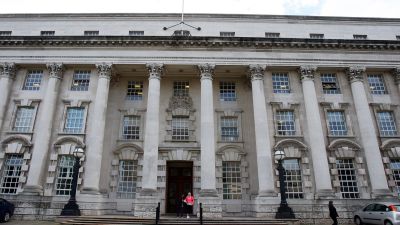Son of convicted rapist fails in bid to have father's parental responsibility revoked

The son of a convicted rapist is legally prohibited from having his parental responsibility revoked, the Court of Appeal ruled. Senior judges in Belfast denied the 17-year-old boy’s bid to terminate a status his father obtained through being married. But they upheld a previous decision to absolve a Health and Social Care Trust in Northern Ireland of any obligation to keep the man informed about the welfare of his son and two other children.
Lady Chief Justice Dame Siobhan Keegan described it as an exceptional case involving convictions for serious sexual assaults on other children and the risk of significant emotional harm to the boy. The teenager, referred to as SV, and his two siblings were taken into care after their mother died in 2014. A year later their father, PV, was jailed for raping and indecently assaulting their older half-sisters. Despite being released on licence in June 2021, he remains on the sex offender’s register for life. Amid further allegations of physical, emotional and sexual abuse, all three of the children have made it clear they want nothing to do with their father. Legal bids to have his parental responsibility terminated mounted by each of the siblings were dismissed by the High Court last year. Under the terms of the Children (Northern Ireland) Order 1995 a competent 17-year-old can only apply to revoke the parental responsibility of an unmarried father. An appeal mounted by SV centred on assessing the Order’s compatibility with the European Convention on Human Rights. With a bar on terminating parental responsibility for married fathers in Northern Ireland, Dame Siobhan acknowledged the claims of discrimination and the potential for the boy to be worse off than a child of an unworthy, unmarried father. But in a “controversial, difficult and culturally sensitive area of law”, she held that the status of marriage as a long-established social norm posed an insurmountable problem. The different provisions for married and unmarried fathers was a choice made by Parliament, the Lady Chief Justice pointed out. “We accept that there must be some test to protect children and mothers from unmeritorious fathers,” she said. “The grant of parental responsibility to unmarried fathers who jointly register the birth of their children with the mother, strikes a fair balance between the sometimes-conflicting rights and interests of children, mothers, and fathers.” Dismissing SV’s appeal, she added: “Whilst sympathetic to the appellant who we have said is a capable young man, we are not convinced that his argument can win the day in law.” However, the court backed the previous granting of a declaration that the Trust is under no obligation to inform or involve PV in any decision-making process about the three children. The court heard he still denies raping his stepdaughters and asserts that he was wrongfully convicted. With the man having written to his children from prison, setting out his intention to reunite the family, he has been assessed as posing a serious risk to them. Dame Siobhan stated: “This case strikes us as an exceptional case marked by some significant features, not least the father’s conviction for serious sexual offences against half-siblings, allegations made by the other children of the family, the father’s persistence in wanting to control the children, the father’s lack of acceptance, and the vulnerability and disturbance experienced by SV at a formative time of his life.”
Want a quick and expert briefing on the biggest news stories? Listen to our latest podcasts to find out What You Need To Know.